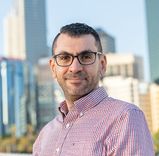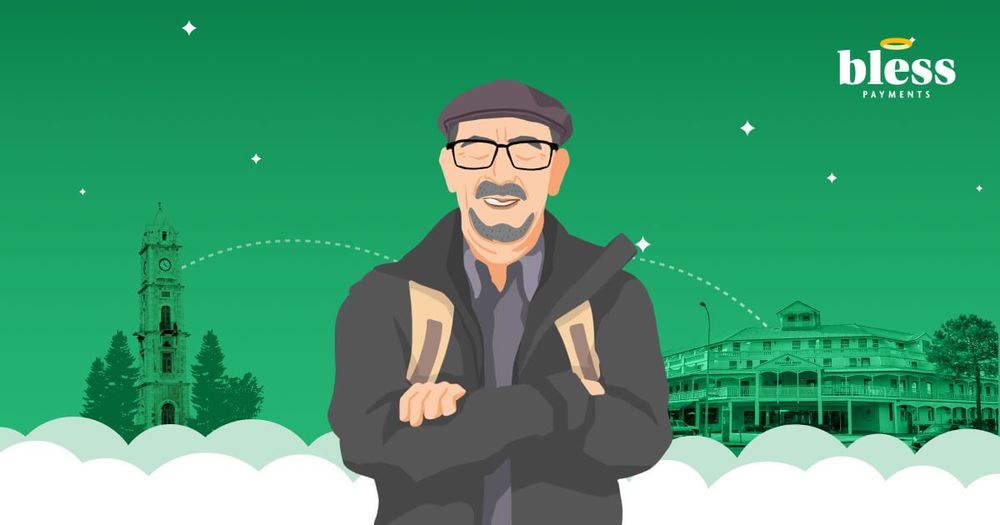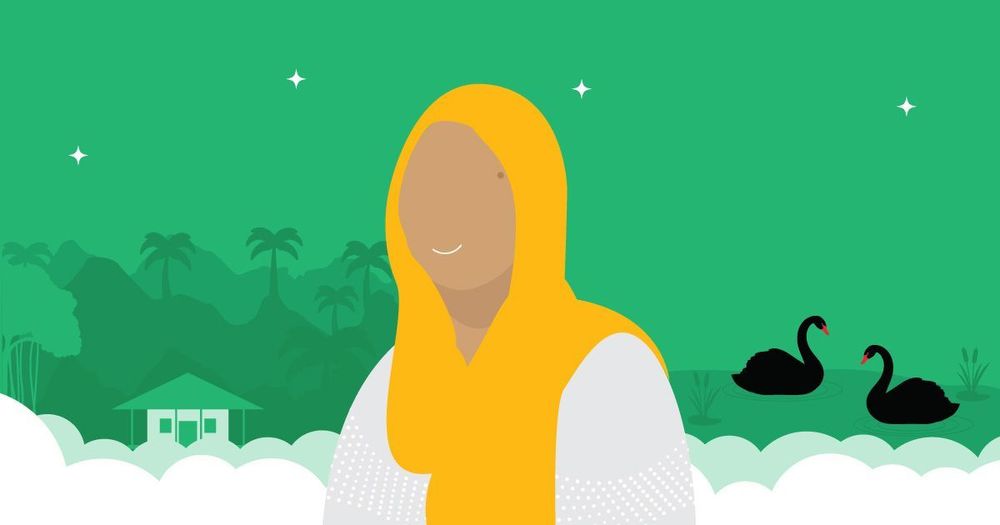
Mo Zaatar
•21 Mar 2024
•8 min read
Navigating Two Sri Lankan Identities and a Career of Caring: Anju Sivarajah's Story

Anju Sivarajah came to Australia very young, with the Sivarajah family escaping potential danger because of their Tamil family name.
Having been involved in education and supporting First Nations people and migrants navigate the challenges of being minorities in Australia, Anju is also supporting her mother-in-law, who lives in Sri Lanka and maintains the family home.
She shares her experiences as a migrant who grew up in Australia, and reflects on the importance of being able to send money back home urgently, when needed.
How long have you been in Australia?
I've been in Australia for most of my life, having migrated from Sri Lanka when I was around five years old.
That’s a big move to make so young - can you share more about your migration experience and what prompted your parents to relocate?
My parents are from different ethnicities, with my dad being Tamil. After the 1983 riots in Sri Lanka, which posed a threat to our family due to our identifiable Tamil surname, we were sponsored to Australia by my mom's family, who were Sinhalese.
How did your parents adjust to life in Australia?
My mum quickly adapted and found work, having a background in administration. She worked in the government for over 40 years. On the other hand, my dad, despite doing well in business back in Sri Lanka, struggled to replicate his success in Australia. As is often the case for many migrants, they find the business dynamics here are quite different. I’m sure it impacted his mental health - even if silently.
Did you have any connections to Australia before making the move to help you settle in to your new life?
Absolutely. The fact that my mom's sisters were already in Australia facilitated our quick sponsorship, sparing us from the challenges many migrants face.
After migrating to Australia, you must have started school pretty quickly. How did you find that experience given your background?
In high school, I didn't initially experience racism, but as I got into my early 20s, I realised the influence of my dual ethnicities. I went through school without a clear sense of belonging, something that I only understood later in life. It’s like you don’t realise what you were going through, until you look back on your experiences.
What did you end up studying?
I completed my diploma in Human Services and then pursued a Bachelor of Social Work. However, I diverted to a Bachelor of Arts in Aboriginal Studies. I eventually became an education assistant in schools, a role that allowed me to align my work schedule with my daughter's schooling.
Do you think your cultural background played a role in encouraging you to move into social work?
I always knew I wanted to help people, and my uncle's stories about social work inspired me. Starting with a Bachelor of Arts in Cultural Studies, I later delved into social work. My initial exposure to racism towards First Nations people in the field prompted me to pursue a deeper understanding of Indigenous Australian history. Eventually, I transitioned into working with migrant and refugee communities, with a desire to make a positive impact - sharing as much empathy as I could offer thanks to my own journey.
How did your migrant experience influence your career choices, especially in the context of migrants and refugees?
A significant role. One of the things that I’ve really noticed in recent years is that the challenges that migrants face - especially younger ones - is always changing. Social media and cultural dynamics as millennials and Gen-Z come to dominate public life, is changing how migrants fit in with those around them.
So after getting into social work, you then moved to become an education assistant - why the change?
That decision was driven by my desire to be more present in my daughter's life as she progressed through her schooling. Despite financial challenges, I made this choice to prioritise my family. It’s been a largely positive one, though: the shift from running programs to assisting directly in schools has been a humbling experience, bringing a unique perspective to my work.
What led you to discover Bless Payments? Do you still have family in Sri Lanka?
I started using Bless Payments when I needed to send money for a family wedding. The quick and efficient service surprised me, and it prompted me to use it for urgent payments, especially when supporting my mother-in-law's return to the family home.
My mother-in-law is 86 and has been in Sri Lanka for most of her life. She visited Australia, spent close to a year here - but really there’s something about the connection to her roots which kept her drawn to the homeland.
And now you make regular payments with it?
Absolutely. As she secures the home property's future, our ability to contribute financially, facilitated by Bless Payments, has made it possible to address urgent needs, such as purchasing new appliances and covering essential expenses. The ease of use and swift transactions have been instrumental, allowing us to provide financial assistance without any added stress.
Just to finish, how have you found Australia in general in terms of being able to support family overseas?
For many cultures - including mine - it’s important to financially support elderly parents, especially as they become less self-sufficient and need that helping hand. That comes from a sense of responsibility and gratitude towards our parents. Dealing with family stuff from far away can get complicated. So Bless has been a bit of a game changer. It’s quick, reliable, and takes the hassle out of making sure we can stay connected and support our family.
1046 views
Recent Posts
See All



